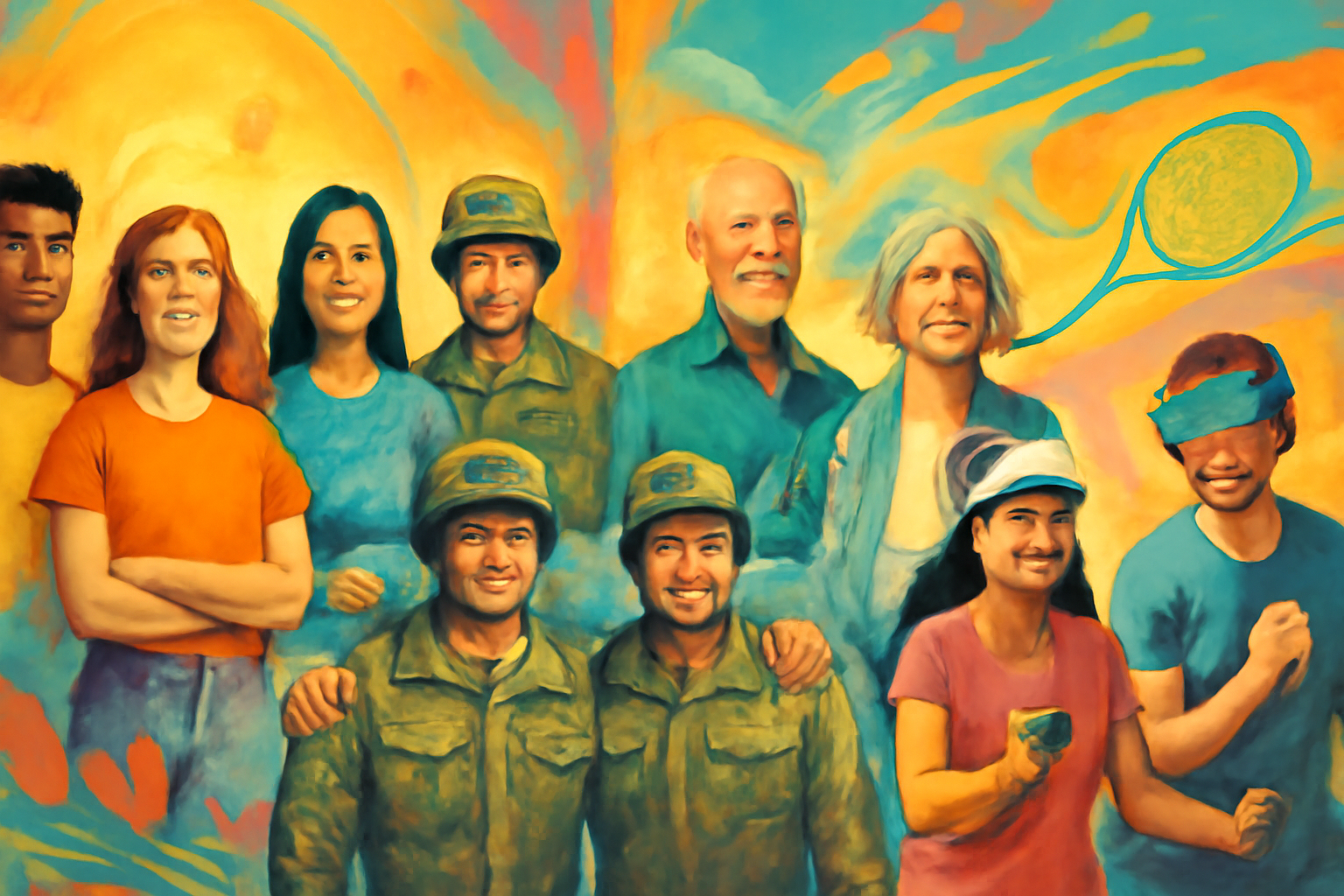Global mental health continues to be one of the most challenging questions of our time, with deep-reaching implications for all sectors of society and every individual. Today’s headlines, from survivors of the catastrophic wildfires and soldiers and veterans, to technology advances and youth everywhere, illustrate that we urgently need compassion, creative engagement and community, as we navigate global mental health across a dynamic landscape.
Global Mental Health: Youth Trauma and Recovery After the Maui Wildfires
Two years later, global mental health is fragile in post-wildfire Maui, where youth are still struggling with anxiety, sleep issues and a prevailing sense of fear that is affective for their sense of safety. Families and schools have been on the frontlines of global mental health recovery by trying to restore education and emotional readiness in children who may not be able to articulate the enormity of their loss. Community recovery is attempting to take hold; long term, this will depend on needed resources, counseling programs, and community and ample human empathy.
Soldiers on the Front Lines of Psychological Distress and Global Mental Health
The cost of conflict is not only measured in headlines or territorial lines but also in invisible wounds that impact global mental health. In Israel, over 10,000 IDF soldiers have sought mental health treatment since October 7. For many, the relentless stress of combat, separation from family, and exposure to traumatic incidents has led to depression, anxiety, and post-traumatic stress disorder, all deeply affecting on a societal scale. The military is responding with more robust counseling options and peer-driven programs to address needs, but the scale of need is enormous. These stories highlight how service in conflict zones can leave lifelong scars that require ongoing, specialized care in the context of global mental health.
Veterans Facing the Lingering Toll of War on Global Mental Health
A related report reveals that more than half of disabled Gaza war veterans undergoing army rehabilitation are also battling mental health issues. The road to recovery for these veterans is steep, as physical injuries are compounded by psychological pain—often manifested as nightmares, substance use, or challenges reintegrating into civilian life. Rehabilitation centers are striving to provide holistic care to support but families and support networks are equally vital in helping veterans rebuild their confidence and sense of belonging, addressing the global mental health repercussions of war.
Technology and Hope: AR/VR Sports Games as Social Support
Amid these sobering challenges, new hope emerges from unexpected places. Recent research has found that augmented and virtual reality sports games are making a positive impact on global mental health, especially by enhancing social connection. For those who feel isolated or anxious, these games offer a safe avenue to connect, cooperate, and compete in ways that mirror positive social interactions. In an age where digital isolation is a risk, smart use of technology may be a lifeline for emotional well-being and nurture global mental health for diverse populations.
Conclusion: A Shared Commitment to Healing
From wildfire survivors to war veterans, from gamers to soldiers, the need for support is universal. What these stories share is the reminder that healing is a collective endeavor—where governments, communities, families, and technology must all work together. Only then can we hope for a world where global mental health is not a crisis but a source of strength and connection.
Frequently Asked Questions (FAQ) –
Q: How are youth coping after the Maui wildfires?
Many young people still face anxiety, nightmares, and disrupted routines. Family, schools, and community counseling are critical supports as they process trauma and rebuild stability within global mental health support systems.
Q: Why are so many IDF soldiers seeking mental health treatment?
Continuous exposure to combat, long separations from loved ones, and traumatic experiences contribute to rising rates of depression, anxiety, and PTSD among soldiers—all significant for global mental health trends.
Q: What mental health challenges do Gaza war veterans face?
Over half of disabled veterans struggle with mental health problems, including PTSD, depression, and difficulty adjusting to daily life after injury, reflecting broader global mental health concerns.
Q: How are AR/VR sports games helping mental health?
New studies show that these games can reduce isolation and improve social connections, offering an innovative and accessible tool to improve global mental health for many people seeking emotional support.
Q: What can we do to support mental health globally?
Sustained community support, access to counseling, open conversations, and practical new tools—all underpinned by empathy and public investment—are needed to address the global mental health needs of our time.







